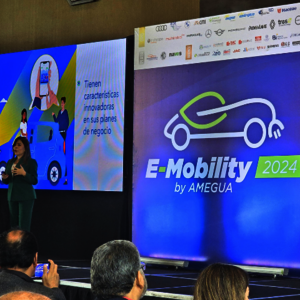CABEI helps entrepreneurs do business at industrial fair in El Salvador

As part of its Green MSME Initiative, the Central American Bank for Economic Integration (CABEI) sponsored the "8th EXPO-FECAICA Industrial Fair 2012," which was held in San Salvador, El Salvador.
The Central American Bank for Economic Integration (CABEI), pursuant to its Environmental Sustainability Strategy and in the framework of its Green MSME Initiative promoted environmental protection through MSMEs by sponsoring the "8th INDUSTRIAL FAIR EXPO-FECAICA 2012."
The fair, which was inaugurated yesterday, was organized by the Salvadoran Association of Industrialists, and this year it included the participation of more foreign firms because the Federation of Central American and Caribbean Chambers of Commerce (FEDECAICA1) was one of the organizers.
The fair included the participation of renowned national and international speakers specialized in subjects, such as energy, employee wellbeing, logistics, innovation and quality. These presentations transformed the fair into a stage appropriate for the establishment of national and international trade relations.
Undoubtedly, industry is one of the most important sectors of the Central American economy. For that reason, this year the Fair’s theme was "Industry - Economic and Social Growth," since no country has managed to progress without fostering this productive sector.
The fair lasted for three days from September 26 to 28 and was held at the CIFCO convention center. It was attended by representatives the diplomatic corps, MSMEs, large companies, equipment suppliers, students and the general public.
The Fair included a presentation to promote the Green MSME Initiative as an alternative for intermediated project financing and non-reimbursable technical cooperation to promote energy efficiency projects in Salvadoran companies, presented by Mr. Italo Rauda, Project Manager for El Salvador.
The Green MSME Initiative was established and is executed by CABEI with financial support from the German government’s KfW Development Bank and the European Union, through its Latin America Investment Facility (LAIF), with the common goal of contributing to climate and environmental protection through regional MSMEs.
In addition to providing loans, the Initiative also has non-reimbursable funds that are targeted at three areas: a) technical assistance to financial institutions, b) energy studies (MSME energy audits and feasibility studies, environmental impact studies and final design of renewable energy projects) and c) promoting the initiative.






